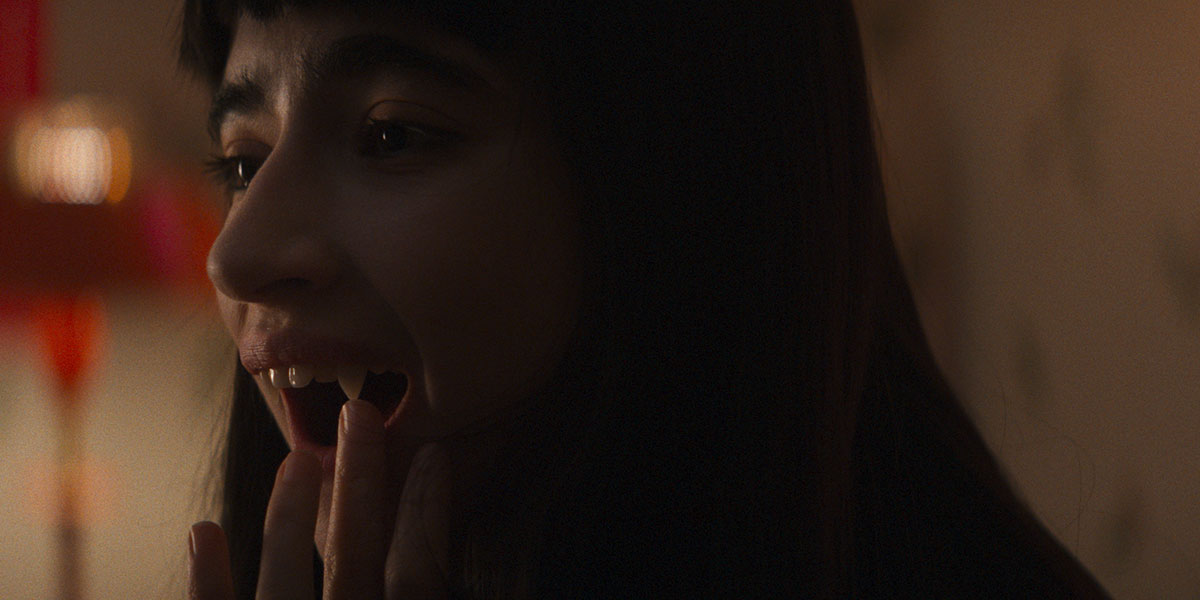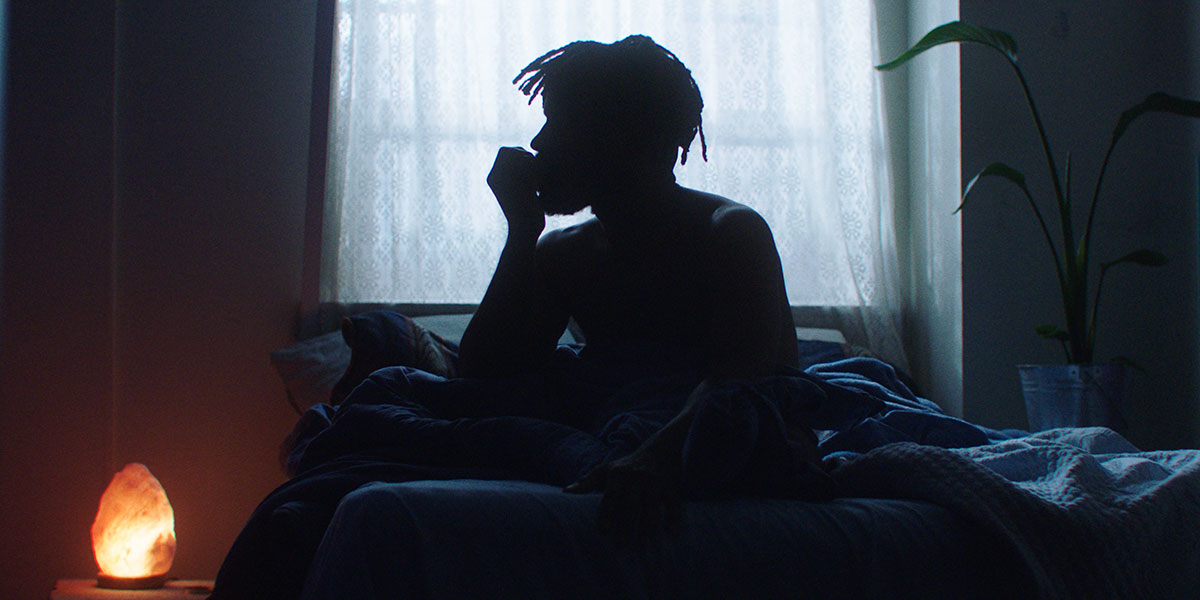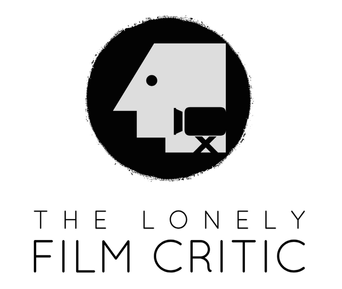
Solo (Dupuis, 2023)
In a climate where the performance and expression of drag has been further politicized on top of its already deeply political underpinnings, with news reports of anti-drag protests outside of libraries, clubs and community centres dotting airwaves more and more frequently, Sophie Dupuis’s Solo finds itself well-positioned as a defiantly, unerringly compassionate cinematic curative. Set in the bustling Montreal drag world, where lip syncs alternate between well-worn disco faves like ABBA and Donna Summer, and contemporary French Canadian artists such as Dominique Fils-Aimé and Mitsou, Dupuis showcases all the beautiful and liberating components of drag life: the close-knit community; the euphoria of a final transformational touch of mascara; the never-ending parade of chic fabrics closely enveloping skin; the joy of strutting a spotlight-warmed stage in front of a cheering audience; the power of tapping into a female alter ego that, consequently, strengthens the soul when the wigs are taken off for the night and you head back into the cold night air, once more a man. It’s all here in Solo, lovingly recreated and captured by the talented cast—most of whom are not, in fact, professional drag artists in real life, making their work here especially impressive.
The film’s heart lies in the character of Simon (Théodore Pellerin), whose foray into drag is still fresh and whose wellspring of creativity is as profuse as his own affectionate capacities. Those affections eventually cleave with two new arrivals in his life: a drag artist from France named Olivier (Félix Maritaud) and Simon’s estranged mother Claire (Anne-Marie Cadieux), back in Canada after 15 years touring as a renowned opera singer. As Simon begins dating the headstrong Olivier and makes enthusiastic plans to reconnect with the mother he barely knows, Dupuis relates this shimmering, gossamer realm of drag and its euphorias with the darker straits of human affairs, knitting their juxtaposition as Simon struggles in his varied roles of artist, boyfriend, son and brother to further highlight drag’s redemptive and restorative potentials. Effective, too, is Dupuis’s even-handed examination of the toxic and unproductive relationships that form here, where no character is left entirely blameless of their decisions, but who are neither presented as unsympathetic monsters, either. There is a careful push-and-pull, of hot egos, careerism and conflicting collaboration, that yields a complex series of characterisations that the actors only too capably are able to encapsulate.
For all the bold clarity of its depiction of drag (particularly one uniquely French Canadian in flavour), Solo feels at times like it stops short of being edgier and innovative than it ultimately could be. Even though, for instance, we see Simon and Olivier performing kinky, BDSM-inflected routines together, and the film almost pauses its action for the supporting cast to present an unabashedly political performance of allyship and resistance towards the end of its runtime, one still can’t help but think Solo—and, by extension, Dupuis—could have still aimed higher and louder to further drown out the hate and intolerance that has become so prevalent of late. At the very least, its unfiltered empathy, coupled with its focus on drag’s cathartic qualities, allow it to stand with enough merit alongside other works that celebrate drag’s sheer power and fierceness.


Humanist Vampire Seeking Consenting Suicidal Person (Louis-Seize, 2023)
With a quirky title to match its comic horror underpinnings, Québécois director Ariane Louis-Seize’s Humanist Vampire Seeking Consenting Suicidal Person fits snugly into the mould of recent comfort viewing that doesn’t aim to scare as much as it aims to charm—think Wednesday the TV series or What We Do in the Shadows. Horror tropes remain in plentiful supply, from bloodthirsty and raccoon-eyed vampires to a setting of near-perpetual nighttime, but the tone is softer, the violence is less jolting, and the scare quotient is less integral to the proceedings. Instead of visceral chills and jump scares, we have the ennui of lonely teenagers struggling to fit in with their tribes. There is our titular humanist vampire, of course: Sasha (Sara Montpetit), whose outsized empathy towards mortal mankind makes her unable to kill them for sustenance, much to her family’s dismay. And then there’s Paul (Félix-Antoine Bénard), a shy and awkward boy who’s bullied by his peers and contemplates ending his life before a chance encounter with Sasha changes everything. Though an unlikely pair at first, the two form a pact, with Paul ready to die so that Sasha can fulfill her vampiric obligations—but not before Paul can get even with his tormentors first.
Louis-Seize’s debut has the sugariness of a romantic young adult tale attached to a sly and understanding wistfulness, a pairing which strangely works. A scene in which Sasha and Paul listen to a record together shortly after meeting, the two slowly unwinding to the music as Shawn Pavlin’s cinematography turns lush and vivid to mirror their burgeoning connection, is one of several instances in the film where Louis-Seize finds a pulse on what it’s like to find acceptance in a world that so easily and recklessly dismisses those who have trouble conforming, either because of their personality or their fragile mental state. Indeed, the film doesn’t shy away from broaching the dark undertows of suicidal ideation in particular and grappling with moral grey areas regarding mental suffering and the agency of those who believe that death is their preferred recourse. However, it doesn’t engage in these conversations to the most fulsome extent possible owing to the story’s fantastical elements, which are simultaneously shaded in with Louis-Seize’s determination to keep the film lighter, simpler and, above all, funnier. In one sense, some tonal incongruity is felt, but one also recognizes that a more serious discourse would have resulted in an entirely different film.
As such, Humanist Vampire remains a pleasing, yet insubstantial diversion, one best viewed on a cool October night with your romantic partner when every shadow outside your window feels imbued with mystery and cuddling close together is a necessity. Its sheer likeability, coupled with the sweet and tender performances from Montpetit and Bénard, make it go down easily and appealingly, although it’s hard not to wonder at times whether a more provocative film could have evolved had Louis-Seize chosen to go down a different route. And yet, with the film canon already replete with serious and brooding vampire fare, perhaps making room for something cute and fairly undemanding has its merits, too.


i Don’t Know Who You Are (Murray, 2023)
Health care struggles for the queer community has been sparsely covered on film since the zenith of the AIDS crisis—indeed, if it’s covered nowadays at all, the painful memories of AIDS seem to be returned to the most. And the ghosts of that era do haunt M.H. Murray’s strong and moving debut feature I Don’t Know Who You Are, as its protagonist Benjamin (a superb Mark Clennon, also acting in his debut film) is the victim of a violent sexual assault after a night of partying and is confronted with the possibility of an HIV infection that may take weeks to manifest itself. Medical advances have made living with HIV manageable, but the post-exposure prophylaxis (or PEP) he needs to take in order to stave off the virus is costly—almost $1,000, in fact. And Benjamin—self-employed music teacher by day; club musician by night—has no personal insurance coverage to rely on, his credit card is maxed out, and applying for the government program that could lower the cost of the pills will take too much time and red tape. Because Benjamin doesn’t have the luxury of time. For the pills to be most effective, they need to be taken within three days of potential exposure, and if the money can’t be found within that time frame, the life of one man may change irrevocably.
Murray’s film is intensely frustrating, but in the good sense of the word. It is an eye-opener for everyone, queer and straight alike, as to the gross imperfections of Canada’s health care system for the systemically disadvantaged, especially those in need of life-saving care that cannot readily be accessed without a price. Benjamin’s tribulations as he calls friends and former lovers to ask for extra cash, all the while gradually sinking into alcohol-induced bouts of despair, are filtered with the anxious swerving of Murray’s handheld camera, transmitting all the darkness and unease of being trapped in such an uncompromising situation. But neither Murray nor Clennon ever lose sight of Benjamin’s humanity, either, taking care to show us his sensitive nature, his artistic talents, his warm teaching abilities and camaraderie with his friends so that, when he does make mistakes during the course of the film, our sympathy never strays from his side for a moment. At the film’s heart we see a fundamentally decent human who is Black and queer being caught in a tangled web of vicious circumstance, and we bemoan the horrors of the sheer inequality that is entailed. All because he is not only trying to live a good and normal life, but because he wants to remain healthy while doing so. And shouldn’t this be a simple right that we all deserve, and not just the wealthiest and most privileged amongst us?
I Don’t Know Who You Are is an odyssey in miniature, occurring within the span of only three days, but its topicality and relevance holds resonance well after Benjamin’s personal journey ends, and I certainly hope queer filmmakers of all stripes will be inspired by the issues the film presents well down the line so that, hopefully, the inequalities here can be rectified.


